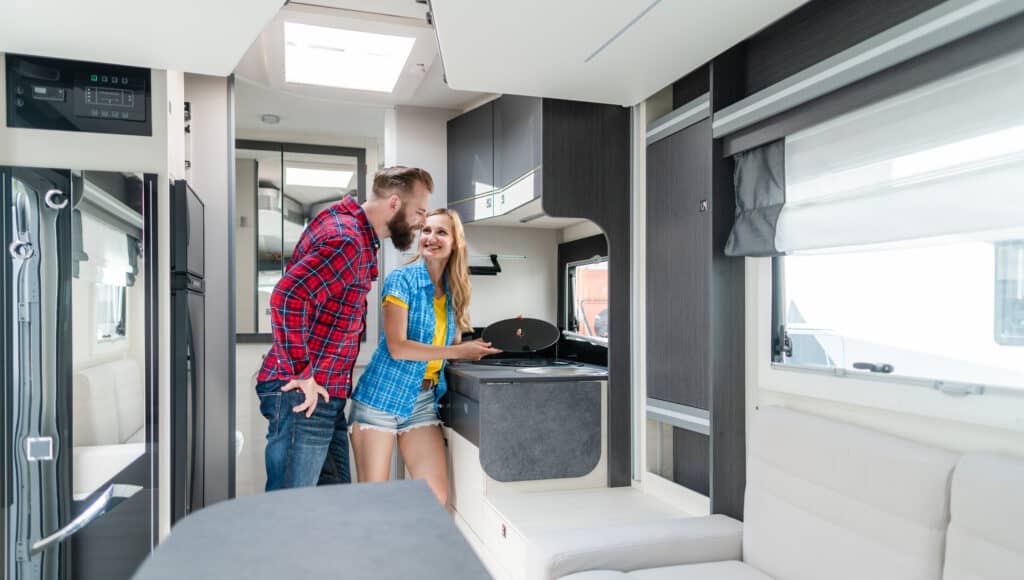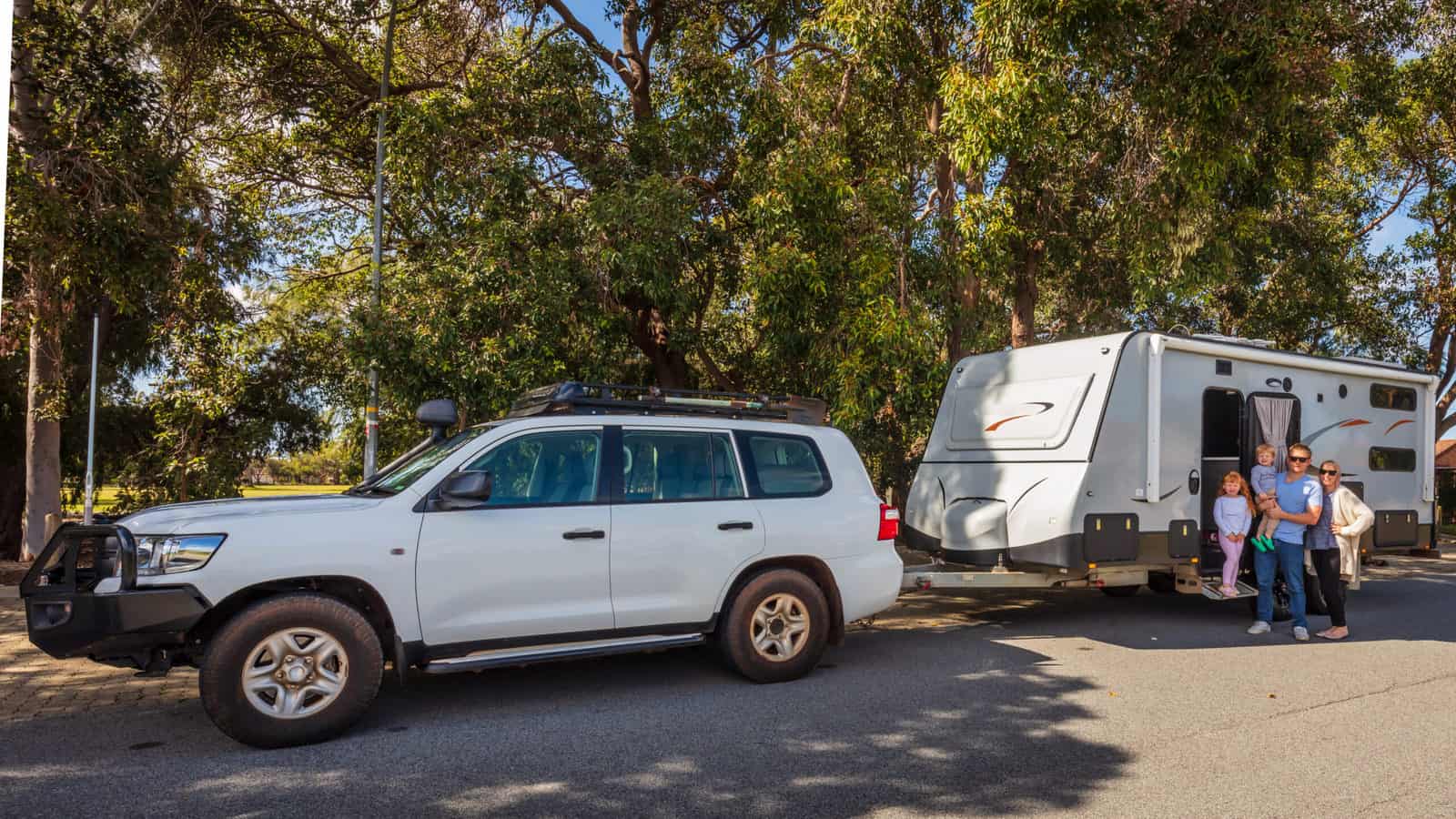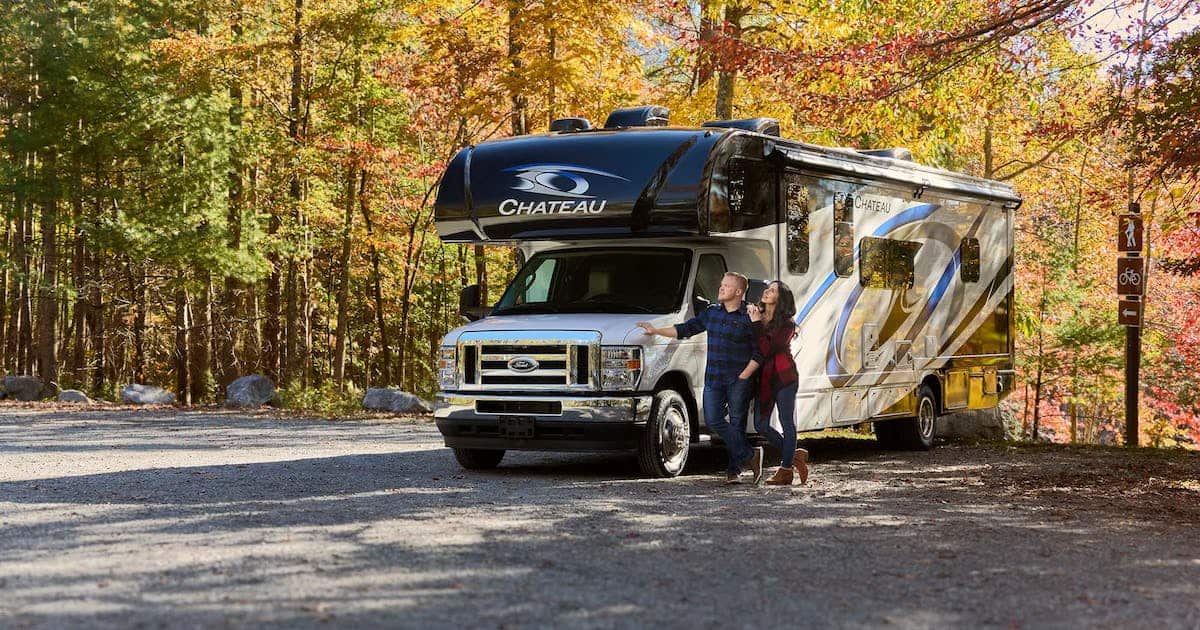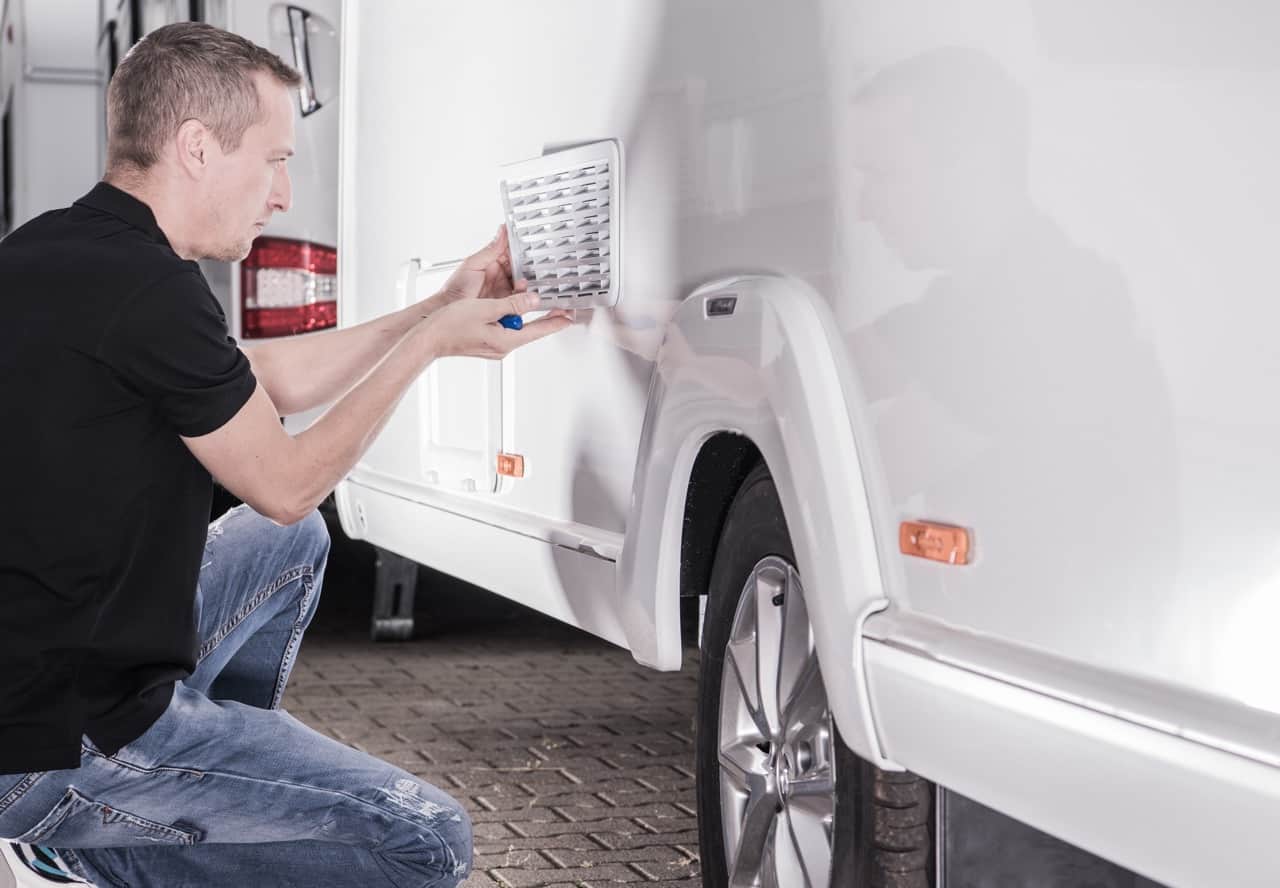
Why You Should Triple Check Your RV Pre Delivery Inspection
It’s almost time to bring home your brand new or new-to-you RV from the dealership. You’ve researched online and scouted RV lots and showrooms for months to find just the right type of RV to fit you and your traveling crew’s needs. And now that you are here, at the home stretch, you can’t wait to drive off the lot in your home on wheels. But hold on there, tiger, there are a few more hoops you’ve yet to leap through, the final steps of purchasing a rig, particularly the step about the RV Pre Delivery Inspection (PDI).
What is a PDI?
An RV Pre Delivery Inspection is precisely what the name implies. It’s an examination of a new or used unit intended to make sure everything functions as it should before handing it over to the buyer. PDIs are meant to give the new owner reassurance and confidence in the RV they are buying. In addition, it highlights any repairs or damages that need to be addressed before the final purchase. Plus, it justifies a fair price for the unit.
Who performs PDIs?
The dealer provides its own PDI for each RV; however, to ensure a thorough inspection of the unit, it’s good to conduct additional PDIs. These PDIs can be completed by a certified RV inspector and the RV buyer/owner (you). Taking these extra precautions helps reduce the chances of bringing your RV right back in to have warranty work done. In addition, it assures you can enjoy your rig as soon as you drive away with it.
RV Pre Delivery Inspection by Dealer
Every motorhome, travel trailer, and fifth wheel, new and used, must be inspected by the dealership before reaching the customer. Typically a company technician checks all unit components, including electrical, propane, frame, plumbing, tires, appliances, aesthetics like paint and trim, axles, leveling, etc., for any flaws. Then, ideally, repairs are made as needed, and additional upgrades requested by the buyer are installed.
The technician basically readies the RV for the eventual owner. The exact list of items inspected and tested is slightly different for each unit. As a result, the time it takes to complete a PDI varies slightly from manufacturer to manufacturer.
Because RVs are generally set up with similar features and systems, the bulk of checklist items mirror one another. For example, the following checklist provided by RV World in Ramsey, Minnesota, shows a sampling of items commonly included in an RV Pre Delivery Inspection.
Sample RV Pre Delivery Inspection Checklist
Exterior
- Entrance and screen doors
- Compartment doors
- Leveler operation
- TV antenna
- Paint/decal/molding/roof
- Step adjustment
- Drop pressure leak test
- LP tanks inspected and filled
- Tires inspected and torqued
- Awnings
- Any exterior appliances
- Generator
- Shoreline power cord
- Battery voltage
- All exterior lights
- Slideout seals
- Vents
- Skylights
- Any exterior speakers
Interior
- Cabinets/closets/drawers
- Doors and trim work
- Curtains and blinds
- Furniture/carpet
- Windows and screens
- Floors/caulking/walls
- Smoke and carbon monoxide detectors
- Fire extinguisher in unit
- Table and bed are set up
- Interior appliances
- All interior lights
- Slideouts are operating smoothly with no binding
- TV/DVD player/stereo/speakers
- Fuses/control panel/monitor system panel
Remotes
- TV remotes
- Stereo and DVD remote
- LCI lids out remote
- Fireplace remote
- Ceiling fan remote
Fresh Water System
- Water tank
- Water pump
- Pressure test
- Water fill inlet
- City water intake
- Lines/drains/valves
- Faucets and showers/resealing
- Filters and purification
- Water heater
- Anode rod
- Blow out lines
- Drain all tanks
Waste Water System
- Sewer and holding tanks
- Sinks
- Shower and tub drains/resealing
- Gate valves
- Drain hose and adapter
- Toilet
- All traps and vent pipes
In the following video from Alexandria Camping Centre in Ontario, Canada, Norm Allard, an RV technician with the company, walks viewers through its typical dealership PDI. While Alexandria Camping Centre is only required to complete a standard factory inspection, the dealership goes above expectations to ensure a thorough check-up.
Pre delivery inspection by a certified RV inspector
Even though a dealership conducts its obligatory PDI, it may miss or overlook checklist items. Never rule out supplementary inspections. As a backup source, many customers will hire a certified RV inspector to conduct a PDI.
Hiring a professional inspector to carry out a PDI is advantageous, particularly for those buying a used RV, unable to be present at the dealership, and new to RVing. Not just a second pair of eyes, certified RV inspectors know what to look for when undergoing a PDI and can make sure potential hazards are identified.
Long-time RVers and Influencers Olivia and Kyle Brady of Drivin’ and Vibin’ explain that certified RV inspectors can cost anywhere from a couple hundred to over a thousand dollars. This broad cost range accounts for where the dealership is located, travel time for the inspector, and rig type. They suggest finding certified professionals via Google, social media, and RV forums. They also advise you to turn to NRVIA.
“The National Recreational Vehicle Inspectors Association (NRVIA) is a membership group that provides certification and credentials for professional RV inspectors. Their members are required to follow Standards of Practice and a Code of Ethics,” they explain in their PDI article.
Duane, an NRVIA certified RV inspector, details his job in the video below. He also discusses ways to find certified inspectors and how much to expect cost-wise for services.
Additional notes on certified RV inspectors
On the subject of securing an RV inspector, if you are in the market for an extended RV warranty, companies like Wholesale Warranties require RV inspections before extended coverage purchases. The company sets up potential customers with reputable inspectors as part of their preliminary warranty purchase process.
“At Wholesale Warranties, we require RV inspections before extending coverage for a few reasons. First, the inspection protects RV buyers, as they are able to discover costly pre-existing failures about their RV before buying it, protecting some from an ill-advised purchase. Additionally, we require inspections to rule out any pre-existing conditions that will not be covered by the warranty. RVs that fully pass inspection will have documented proof that no failures existed at the time of purchase of the warranty, aiding customers and our internal claims staff in smooth claims processing.”
Wholesale Warranties
Your pre delivery inspection and other necessary actions
Two separate PDIs, one from the dealership and another from a certified RV inspector, ought to be enough probing and prodding in your soon-to-be purchase, right? While this is the mentality for some RV buyers, taking the reins and running your own Pre Delivery Inspection is a good idea. It doesn’t hurt to triple-check. It’s a perfect opportunity to see how everything operates in your rig, from unlocking side compartments to figuring out the leveling system before sealing the deal.
Prepare for your personal PDI
For folks new to RV purchases, taking on a PDI can be very confusing and overwhelming. So, where do you even start? Stephanie and Jeremy Puglisi of The RV Atlas offer advice for new RV owners on what to expect when taking delivery of their new RV from the dealership. In their guide, they mention the importance of being prepared with necessities specific to your RV.
“Make sure your tow vehicle is properly outfitted for towing,” they advise. Regarding travel trailers and fifth wheels, this setup is all dependent on your tow vehicle’s capacity, hitch weight, payload, etc. “Some vehicles don’t come equipped with trailer brake controls or proper towing hitches. Figuring this out before you arrive to pick up your rig will save you the embarrassment, time, and extra expense of finding out too late.” The same applies to safety equipment like weight distribution and sway setup.
Pair the walk-thru with your PDI
As part of the final steps of signing and driving, the dealership should set up a walk-thru of your unit. This portion of the buying process can take several hours. The whole point is to familiarize the new buyer with every facet of their home on wheels. For this reason, it is crucial to not rush through the process and not feel rushed by the technician giving the tour. This is your time to ask questions, try out and test the equipment, and in the process, see if there are any features or systems that need to be fixed.
As it sounds, there will be a lot to take in, so having a camera to record the walk-thru is vital. “Don’t record the whole walkthrough in one swoop—you’ll be left searching through an hour-long video. Instead, make a short video of the hitching process, one for tank maintenance, one for fridge operations, and so on.” Stephanie and Jeremy suggest.
Try everything out in the RV. Push the slides out, bring them back in, extend the awning, turn the air conditioner and refrigerator on and off, and operate the levelers or stabilizers. Run water through the faucets and even through a hose (one of your RV necessities). Test the wall outlets with a receptacle tester. Practice hooking up your tow vehicle. All of this is part of learning the ins and outs of your new RV.
RVer Todd of The Bueller Bunch discusses how he completed his first RV PDI in the video below. He talks about finding and utilizing RV PDI checklists like this one and offers tidbits as he walks viewers through his own PDI.
Driving your RV off the dealership
Purchasing an RV is no small feat. A lot of research, scouting, planning, preparing, budgeting, negotiating, testing, trying out, and much more goes into the process. However, the final steps of the ordeal are the most important component. PDIs help ensure that your RV is ready for the open road. Knowing that you have taken every step possible can make starting your journey a fun, carefree experience…and isn’t that what RVing is all about?
One of the best parts about RVing is engaging with the community of traveling enthusiasts. iRV2 forums allow folks to chat with other RVers online, and get other perspectives on everything RVing, including products, destinations, RV mods, and much more.





Certified RV technician/inspector here and while I don’t discourage anyone from wanting to make sure their unit is in a condition satisfactory to them before driving off, it is entirely unreasonable to expect to be able to conduct your own PDI before it leaves the dealership. A lot of places don’t like having outside inspectors come in either. At best, you and/or an inspector will be taking up a bay that, in my area, can be up to $200/hr. The more likely scenario is you’ll be keeping a flat-rate technician from being able to make money until you’re finished. We get paid based on how many hours we bill, and if we have to give up our work area for someone else to do our job we’re going to be pretty upset, rightfully so. If you don’t trust the service department enough to conduct a proper PDI, just don’t buy from them.
Besides, ensuring everything works and cosmetic issues have been resolved is what the walk- through is for.